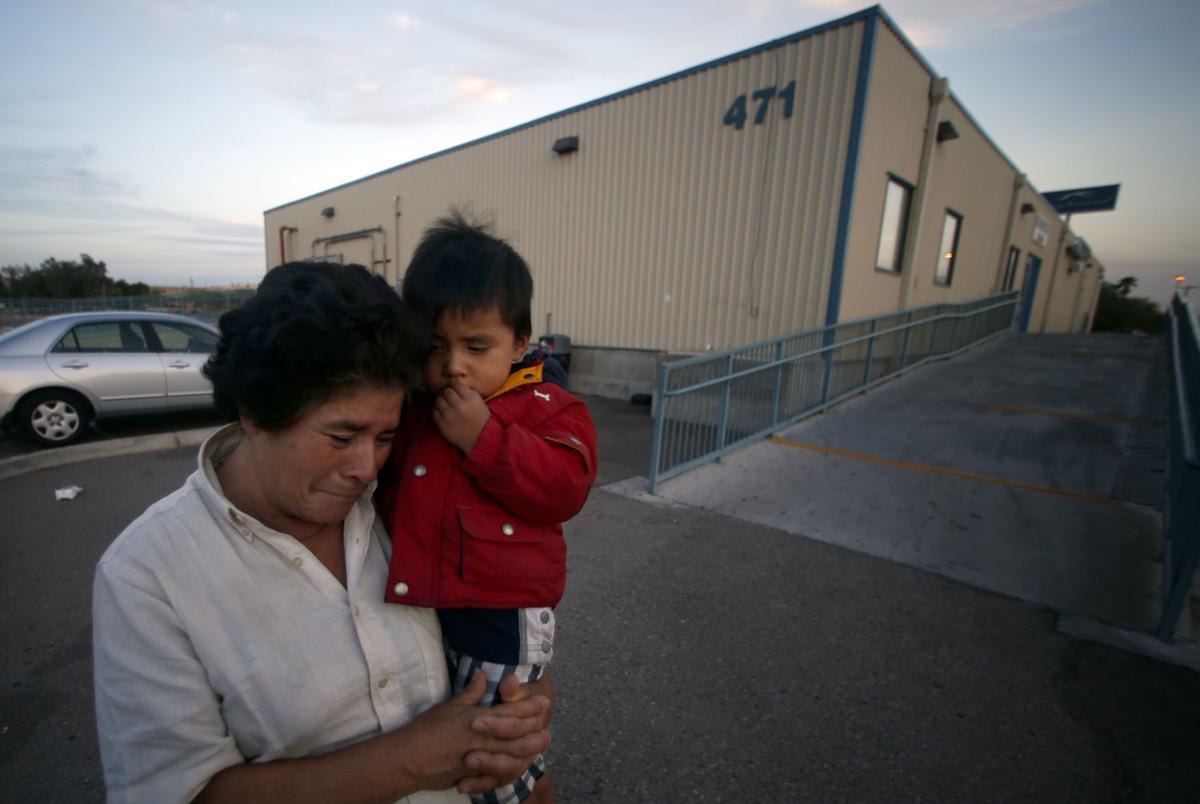Nonprofits plan to return to renting hotel rooms to help keep up with the number of migrant families coming through Tucson and avoid having some of them dropped off by Immigration and Customs Enforcement agents at local bus stations.
“The shelters are full right now,” said Teresa Cavendish, director of operations for Catholic Community Services. “Hopefully it will relieve enough of a backlog for ICE that they just don’t need to take people to a bus station or do a street release.”
In October, Border Patrol agents in the Tucson Sector apprehended 1,163 parents and their children, up from 170 during the same period last year. In Yuma, agents apprehended 2,625 family units, up from 880 in the same period last year. Another 861 parents and their children presented themselves at Arizona ports of entry last month.
There’s typically a rise in apprehensions this time of the year, Cavendish said, but the current number of families is “over and above anything I’ve seen over the last 4ƒ years.”
At least 70 fathers and their children were dropped off at the Tucson Greyhound station by ICE agents Monday and Tuesday. At least another 20 to 30 families were dropped off in Phoenix, according to Leah Sarat with the Restoration Project in Phoenix.
The nonprofits were told it was part of a new practice in which ICE would prioritize the most vulnerable migrants for space in shelters: women traveling with children and fathers traveling with children 3 years old and younger. Migrant fathers traveling with older children would be set free outside of ICE offices or dropped off at a bus station.
Gretchen López, coordinator with the Inn Project, said she went to Tucson’s bus station Monday evening after getting a call from Greyhound workers. She found about 20 migrants there.
“I was able to take the majority to the shelter and to a second location run by the Inn Project,” she said. “So far, no one has been left on the street between the various shelters.”
In Tucson, among Casa Alitas, run by Catholic Community Services, and the Inn Project, run by the United Methodist Church, and a couple of local churches, there’s a capacity to house about 100 people, Cavendish said. Released families aren’t always able to leave immediately because of issues such as buying tickets and bus schedules.
By Wednesday, ICE officials had worked with the nonprofits to send all released families to shelters. The hotel will accommodate between 50 and 60 people, Cavendish said.
ICE will continue to monitor capacity daily. If there’s no shelter space, they could release some of those deemed the least vulnerable at bus stations again, said Cavendish and an ICE official who spoke on background.
Due to a lack of detention space for families — ICE has about 3,300 total beds and none are in Arizona — the agency coordinates with local shelters to see how many they can take.
“To mitigate the risk of holding family units past the time frame allotted to the government, U.S. Immigration and Customs Enforcement decides, on a case-by-case basis, whether (family units) will be detained pending immigration proceedings,” said ICE spokeswoman Yasmeen Pitts O’Keefe in a written statement.
“In making these determinations, ICE officers weigh a variety of factors,” she said, “including the individual’s criminal record, immigration history, ties to the community, risk of flight and whether the individual poses a potential threat to public safety.”
The parents are normally outfitted with a monitoring ankle bracelet and given an appointment to meet with an immigration official within two weeks.
But by simply dropping them off on the street, López said, “they are setting them up for failure.”
Families who are released to continue their immigration cases elsewhere don’t typically have mobile phones or money. They often haven’t showered or eaten a proper meal in days, advocates say, and the bus rides to states such as Florida or South Carolina can be long.
At the shelters here, families get food, may take a shower and spend the night if needed. They also get phone access to connect with relatives to buy their bus tickets. And they get clothes and snacks for the bus ride. Volunteers also drive them to the station and explain the ticket system and where they have to transfer.
In October, ICE released about 700 parents and their children into Arizona, prompting the nonprofits to turn a church gym into an impromptu shelter on short notice and later rent hotel rooms to house the families.
“We don’t know what’s next,” Cavendish said. “Other than collaborating with more community organizations to come on board, as many as those sites as we are able to help do this work, that’s really the best option for Tucson.”





